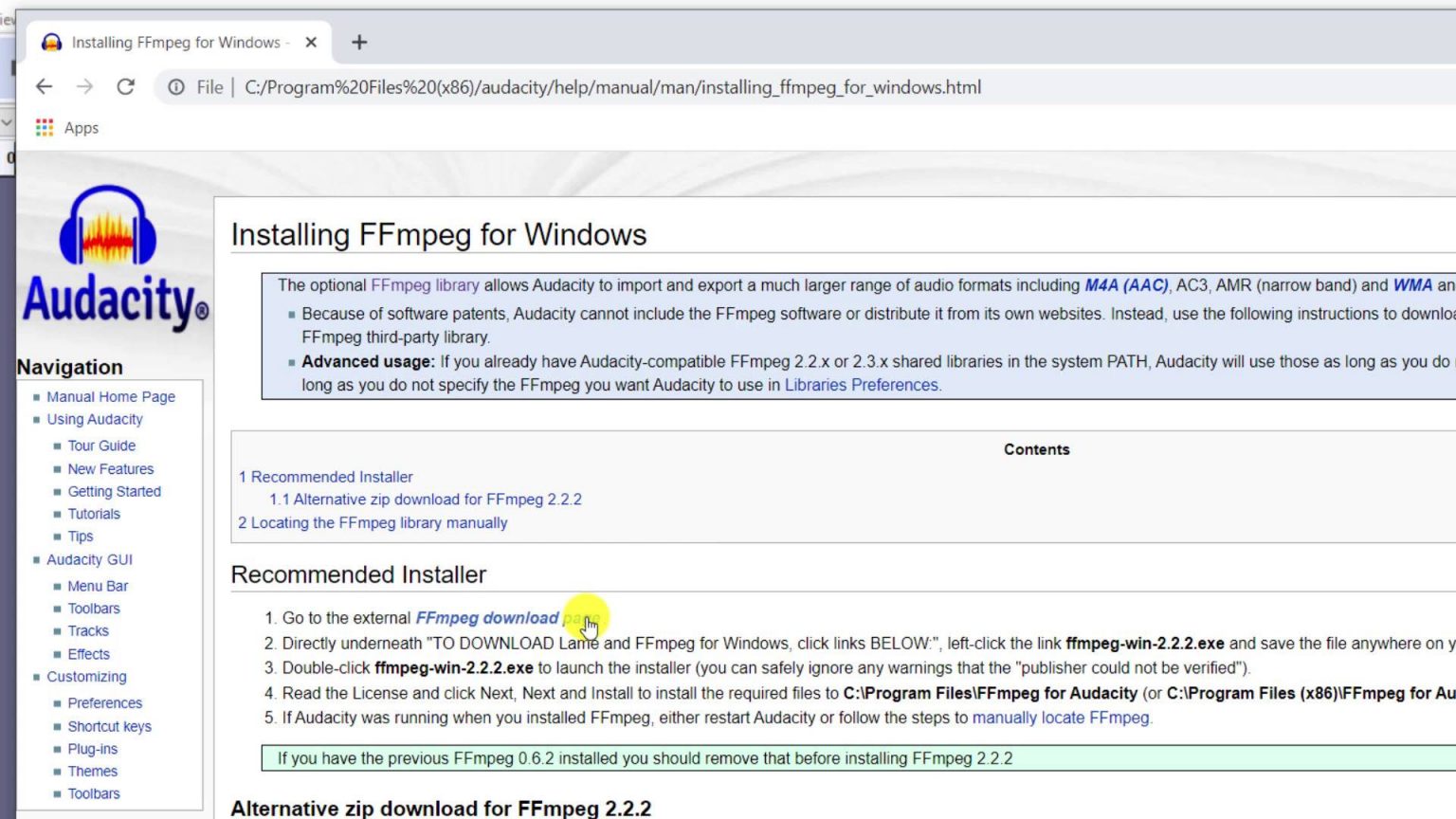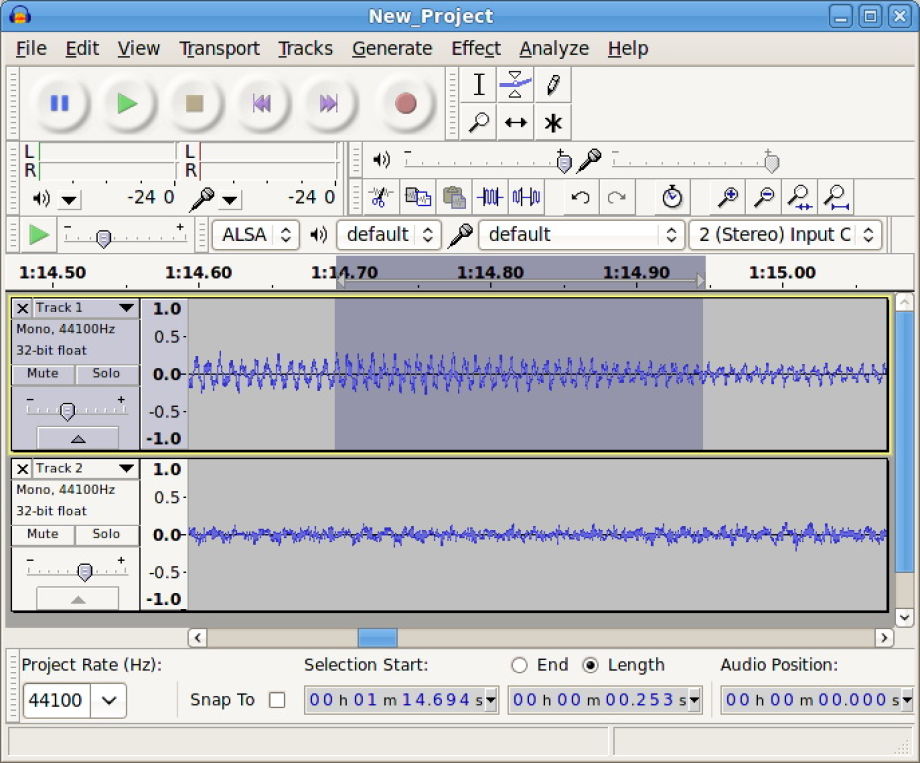

* Envelope Tool to fade the volume up or down smoothly. * Unlimited Undo (and Redo) to go back any number of steps. * Easy Editing with Cut, Copy, Paste and Delete. * Tracks with different sample rates or formats are converted Automatically in real time. * Sample rates and formats are converted using high-quality resampling and dithering. * Supports 16-bit, 24-bit and 32-bit (floating point) samples (Latter preserves the samples in excess of full scale).

* Import and export AC3, M4A/M4R (AAC) and WMA with the optional FFmpeg library. * Export MP3 Files with the optional LAME encoder library. * Import raw (headerless) audio files using the “Import Raw” command. * Import MPEG audio (including MP2 and MP3 files) using libmad.

* Import and export all formats supported by libsndfile Such as GSM 6.10, 32-bit and 64-bit float WAV and U / A-Law. * Import and export WAV, AIFF, AU, FLAC and Ogg Vorbis files. Import sound files, edit them, and combine them with other files: Whether you are making music, podcasts, or audio books, Audacity is a very good tool to edit audios or music online. to see diagnostic information about FFmpeg detection.Audacity online is an audio editor to import your own audios, remove noise, cut and combine clips, apply special audio effects and much more in order to achieve professional results. You can also choose Help > Diagnostics > Show Log. button to obtain the correct library for your operating system. If you still see "not found", you may have installed the wrong libraries.

Navigate to the folder that contains FFmpeg and select the file " ffmpeg.55.64bit.dylib".If the " Locate FFmpeg" dialog appears, click Browse.If a " Success" message indicates Audacity has now automatically detected valid FFmpeg libraries and asks if you want to detect them manually, click No, then OK to close Preferences.To do this, access Preferences then the " Libraries" tab on the left:Īs in the image above, the "FFmpeg Library Version" will say " FFmpeg library not found". If you installed FFmpeg while Audacity was running, or if you installed FFmpeg to a non-default location, Audacity will ask you to configure Preferences to locate the FFmpeg library.


 0 kommentar(er)
0 kommentar(er)
